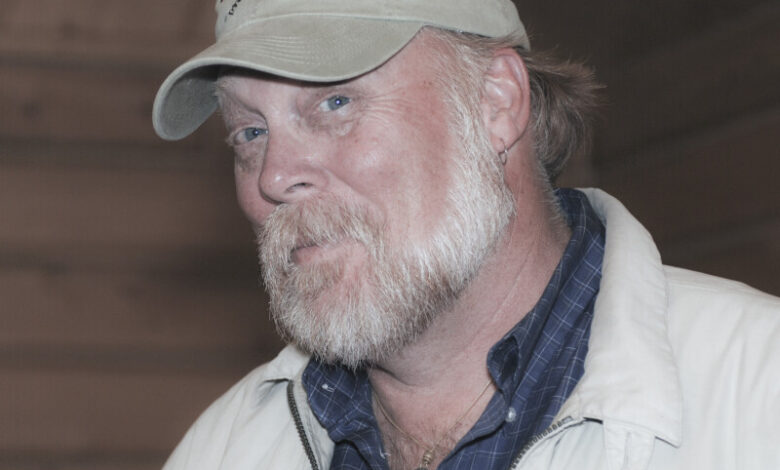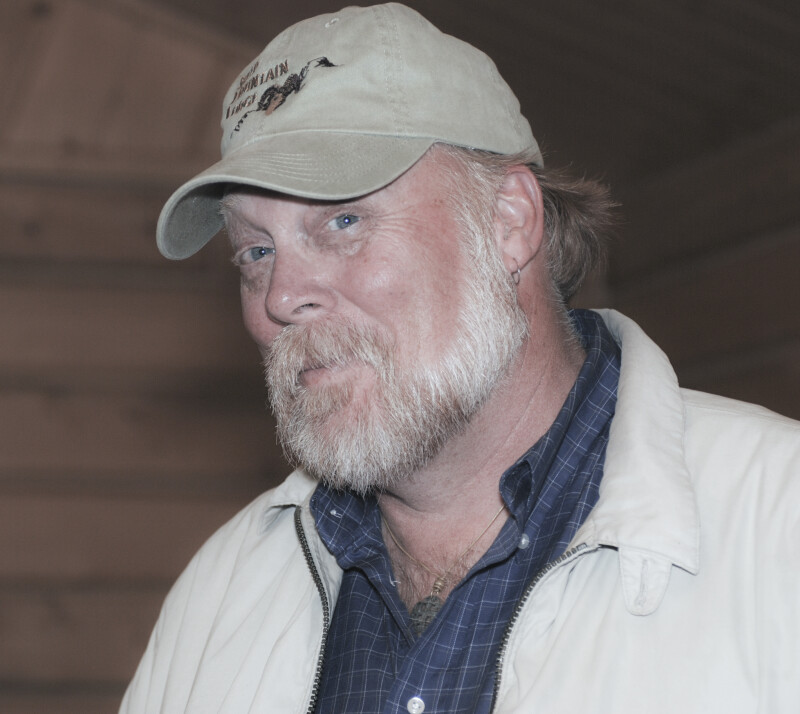Fisherpoet Patrick Dixon recounts lessons learned from a life at sea

July 30, 2025

On his last day fishing — ever — in Cook Inlet after 20 years, Patrick Dixon caught his second-ever salmon shark, a close relative of the great white shark, and decided to keep it, figuring it would fetch a good price from local restaurants with shark steak on the menu.
Dixon and his crew pulled her on board using hydraulics — “a quarter ton of muscle and bad attitude with a deck bucket of razors on the business end, and a tail that could snap a man’s leg on the other,” he writes in the poem, “The Old Man and the Sea Deal,” from his new book Mending Holes.
The incident reminds Dixon of Ernest Hemingway’s classic The Old Man and the Sea, about a grizzled fisherman named Santiago who hooks a monster marlin and wrestles with it for three days and nights before lashing it to his boat — only to have his prize ripped to bloody shreds by sharks.
The big deal was how Dixon’s shark fought like Santiago’s marlin, in a year when sharks were everywhere in Cook Inlet. But in the end, with sales slow at the restaurants that had been buying, nobody wanted his catch.
“Except to teach me a lesson about greed, the deal was, it was all for nothing,” wrote Dixon.
The lesson learned is one of many that Dixon recounts in a fisherpoet style that puts the reader right on board his fishing boat, sharing in the experience. He bemoans towing gear in heavy weather, waiting to deliver the catch while lighting up a smoke and sipping a cold cup of coffee, and cocaine dealers selling their powdered happiness to fishermen during a lucrative harvest year.
Those cocaine dealers, parked next to empty campers owned by fishermen too busy to sleep, even took trips with their best customers — “faux-deckhanding on fish days and providing free product,” he writes in Pompadour. “Everyone knows. No one cares. Toot becomes a tool for exhausted crews and cannery workers.”
And then there are the days when fish “thick enough to walk on just a week ago” are gone, he writes in “Where’d All the Fish Go?” They’ve got to be somewhere, but unsure which way to head, he resolves to sit and wait, drinking coffee, hoping there are a few more sockeye out there.
Dixon also offers a full description of gillnetters floating on the night sea in the rain — sunken nets, splashers, nudgers, jerkers, the “nothing much and better get over here right away” that comes with the territory—along with a fire in the cabin, a blown fan belt, oil in the bilge, and catching a line from a tender for a tow: all probable challenges in pursuit of a good harvest.
The fisherpoet collection ends with “Writing About Fishing” and “Exit Strategy,” poignant poems nostalgic about his upcoming exit from the fishery, in which he is already missing the smell of salt and the seagull’s cry.
“I will walk eternity on salt water, flesh food for crab, blood thick brine, bones ground to sand,” he rues in “Exit Strategy.”
In these and other poems in the collection, Dixon captures the passion of his life as a commercial fisherman.
“How did I get to be so lucky?” he asks. “Someone once asked me, ‘What’s it like working on the water for a living?’”
With this book, Dixon tells it all.
Source link



